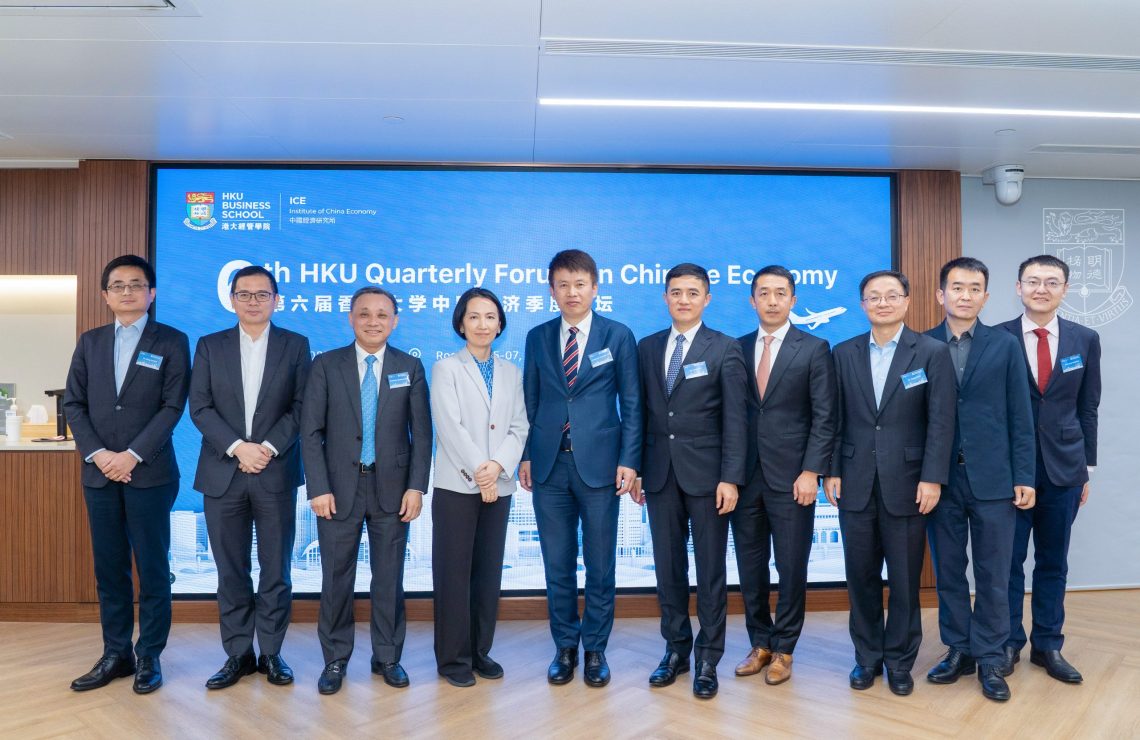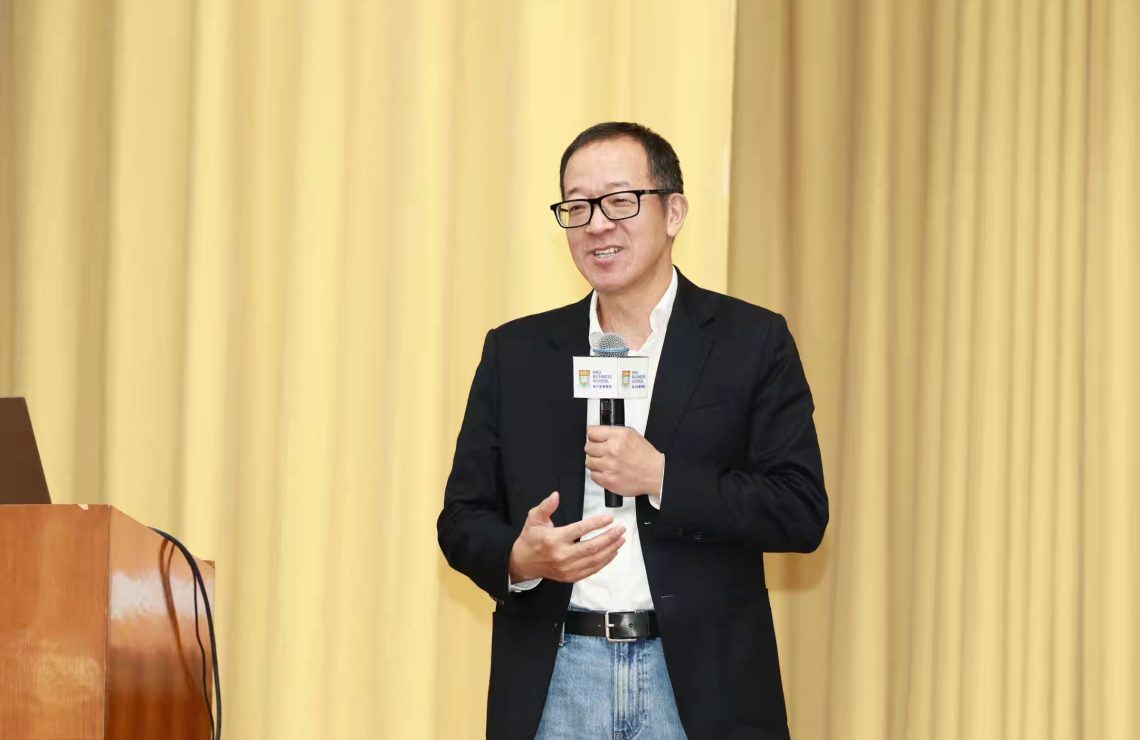The HKU Jockey Club Enterprise Sustainability Global Research Institute Launches Inaugural Forum to Pioneer ESG Best Practices
(7 June, 2024, Hong Kong) The HKU Jockey Club Enterprise Sustainability Global Research Institute (Research Institute), established by The University of Hong Kong (HKU) and funded by The Hong Kong Jockey Club Charities Trust, was officially launched on 5 June with an inaugural forum to foster dialogue and collaboration on the best practices and innovative solutions to Environmental, Social and Governance (ESG) challenges.
The forum brought together a diverse audience of academics, regulators, and leaders of international corporates and NGOs from across the globe, with almost 300 people in attendance.
Professor Xiang ZHANG, JP, President and Vice-Chancellor of The University of Hong Kong, in his welcoming remarks, said, “There is a special meaning in launching the HKU Jockey Club Enterprise Sustainability Global Research Institute and holding the Inaugural ESG forum of the Institute on World Environment Day, as we are in the midst of environmental issues and climate change. This is a complex problem and no single discipline can solve this multifaceted challenge alone. So it is vital for this Institute to study and research the multi-dimensional aspects of industries like business and academia we find ourselves in.”
“Successful implementation of the decarbonization strategies requires the active participation of all stakeholders.” Mr. Chin-wan TSE, BBS, JP, Secretary for Environment and Ecology of the Government of the Hong Kong Special Administrative Region, in his keynote speech, said. “Apart from developing best practices and innovative solutions to the ESG challenges through the conduct of interdisciplinary research, the Institute could provide a capacity building platform to promote knowledge exchange, and to cultivate sustainability leaders.”
Professor Guojun HE, Director of the HKU Jockey Club Enterprise Sustainability Global Research Institute, introduced the Institute’s mission and key initiatives at the forum. He said, “The Institute emphasizes on three core aspects: Research, Engagement and Education. With an aim of fostering a multidisciplinary approach to ESG research with distinguished scholars from diverse fields, the Institute also focuses on facilitating dialogues and forging partnerships, as well as equipping the next generation of ESG professionals and leaders with the knowledge and skills to promote sustainable growth.”
Professor Roni MICHAELY, Co-Director of HKU Jockey Club Enterprise Sustainability Global Research Institute, added, “What we are doing here today is trying to push the society, either investors or corporates, towards responsible leadership, with the legal impact that may have globally. I believe we can create an ESG institute that is going to be not only the leader in Asia, but actually one of the leading institutes in the world.”
The Forum commenced with an ESG lecture by Dr. Erik BERGLÖF, Chief Economist of the Asian Infrastructure Investment Bank, titled “Governing the Net Zero Transition: Country Platforms and The Role of MDBs (Multilateral Development Banks)”, followed by four in-depth panel discussions focusing on key aspects of ESG. During the morning panel session, titled “Regulatory Framework for Green Finance and Sustainability Disclosure”, the speakers shared valuable insights on enhancing regulatory compliance and transparency to drive companies to adopt more sustainable business practices.
In the afternoon, speakers at the session “Pathways towards Carbon Neutrality” explored the role of governments and corporations in developing solutions such as emissions reduction technologies, renewable energy and carbon trading, that can contribute to realising carbon neutrality and promoting sustainable development. Also, business leaders discussed the latest trends and practices in ESG investing on the topic of “Opportunities in Mitigation and Adaptation to Sustainability Risk”, exploring how ESG investing creates value and contributes to long-term performance. In the final session, “Pathways towards Social Advancement”, NGO representatives shared about their roles and initiatives in supporting corporations in terms of social responsibility and social impact, and promoting social justice and sustainable development through ESG practices. Before closing, leading scholars at the HKU Business School presented the latest research findings on a number of key issues in ESG.
The newly-launched Research Institute aspires to establish a world-class hub for ESG best practices for Hong Kong, Asia and beyond. Bringing together distinguished global scholars from diverse fields, the Research Institute aims to foster a multidisciplinary approach to ESG research and training, creating meaningful and lasting impact through pioneering studies, actionable insights, ESG index development, start-up incubation and transformative projects.
The launch of the HKU Jockey Club Enterprise Sustainability Global Research Institute marks an important step forward in Hong Kong’s sustainability journey. “Congratulations on the establishment of the Research Institute, which highlights HKU Business School’s pivotal role in cultivating a future defined by sustainable growth. I look forward to the meaningful and lasting impacts the Institute will bring to the continued advancement of social and business domains,” Professor Hongbin CAI, Dean and Chair of Economics of HKU Business School said.
The forum replay available here.
Photo Caption
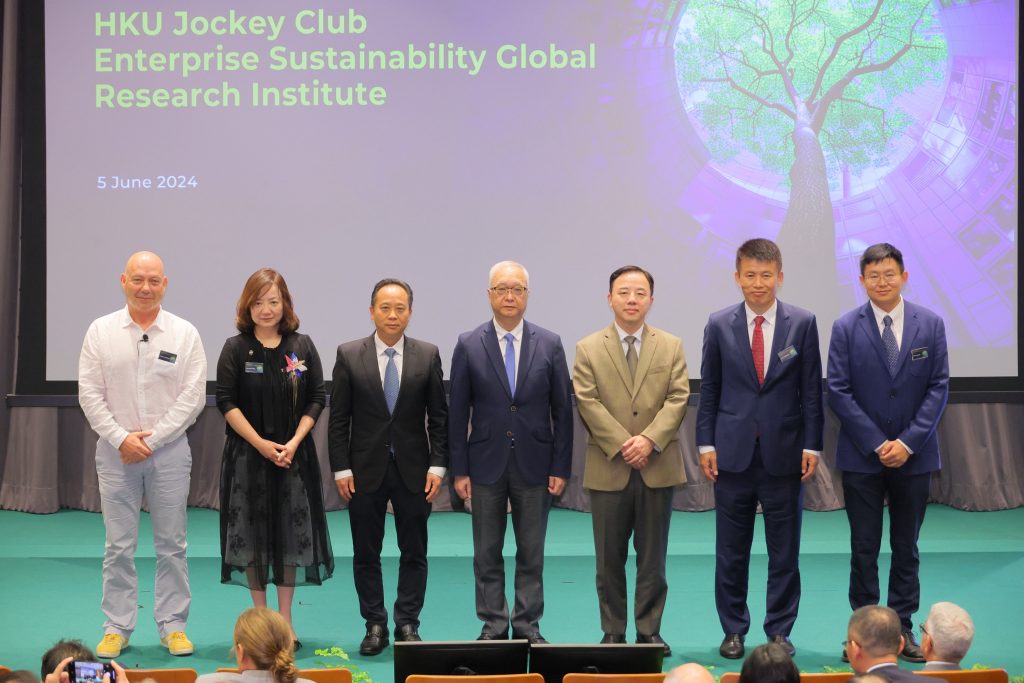
(From left) Professor Roni MICHAELY, Co-Director of HKU Jockey Club Enterprise Sustainability Global Research Institute; Ms. Irene LEUNG, Head of Charities (Strategy, Planning, Operations & Reporting) of The Hong Kong Jockey Club; Mr. Shuiqiu YE, Deputy Director-General, Department of Educational, Scientific and Technological Affairs, The Liaison of the Central People’s Government in the Hong Kong Special Administrative Region; Mr. Chin-wan TSE, BBS, JP, Secretary for Environment and Ecology of the Government of the Hong Kong Special Administrative Region; Professor Xiang ZHANG, JP, President and Vice-Chancellor of The University of Hong Kong; and Professor Hongbin CAI, Dean and Chair of Economics of HKU Business School; Professor Guojun HE, Director of HKU Jockey Club Enterprise Sustainability Global Research Institute, officiate the Inaugural ESG Forum.
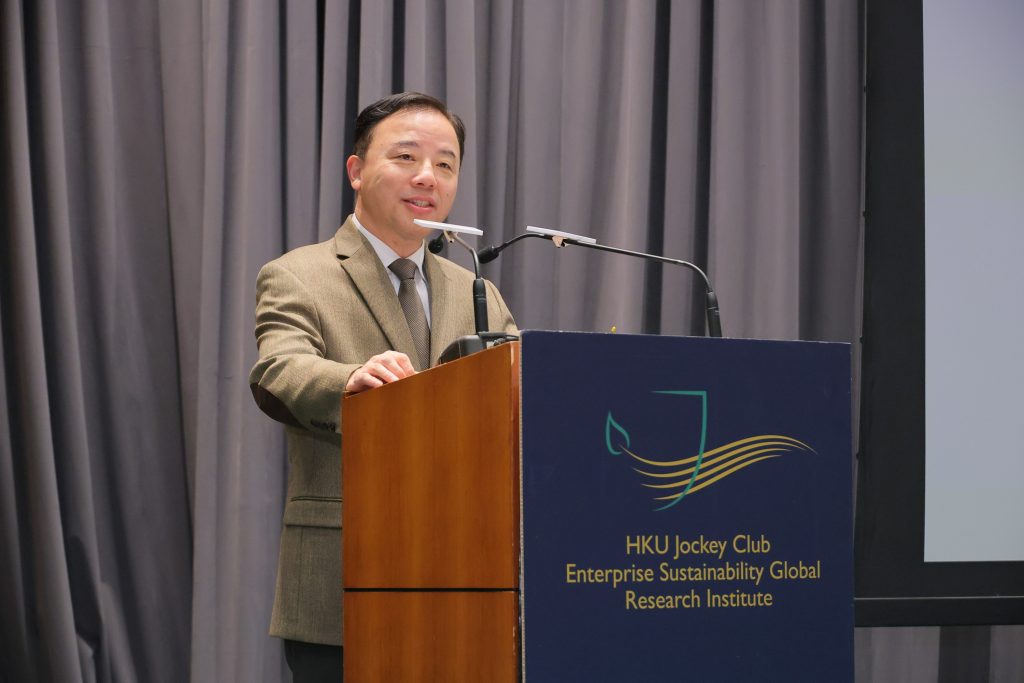
Professor Xiang ZHANG, JP, President and Vice-Chancellor of The University of Hong Kong, delivers welcoming remarks.
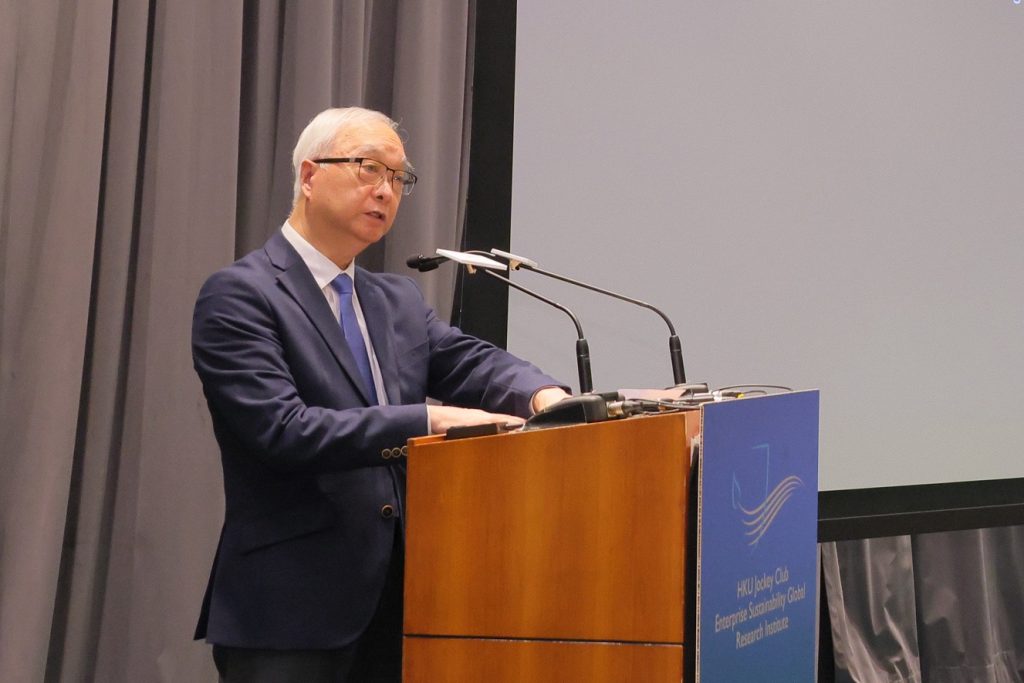
Mr. Chin-wan TSE, BBS, JP, Secretary for Environment and Ecology of the Government of the Hong Kong Special Administrative Region, delivers a keynote speech.
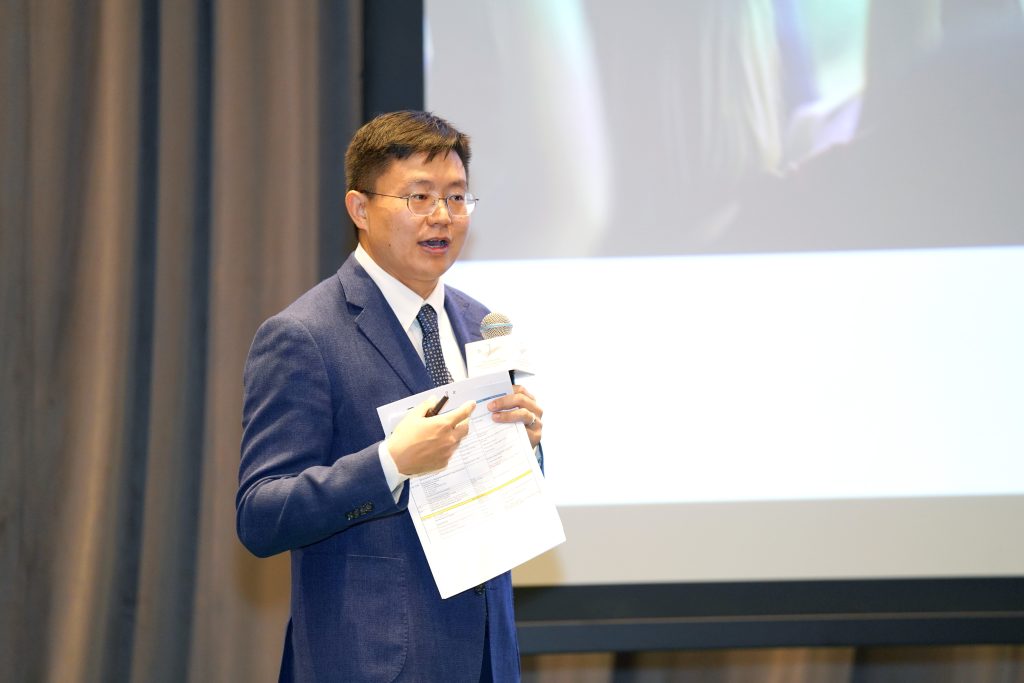
Professor Guojun HE, Director of HKU Jockey Club Enterprise Sustainability Global Research Institute, introduces the Institute’s mission, initiatives and research team.
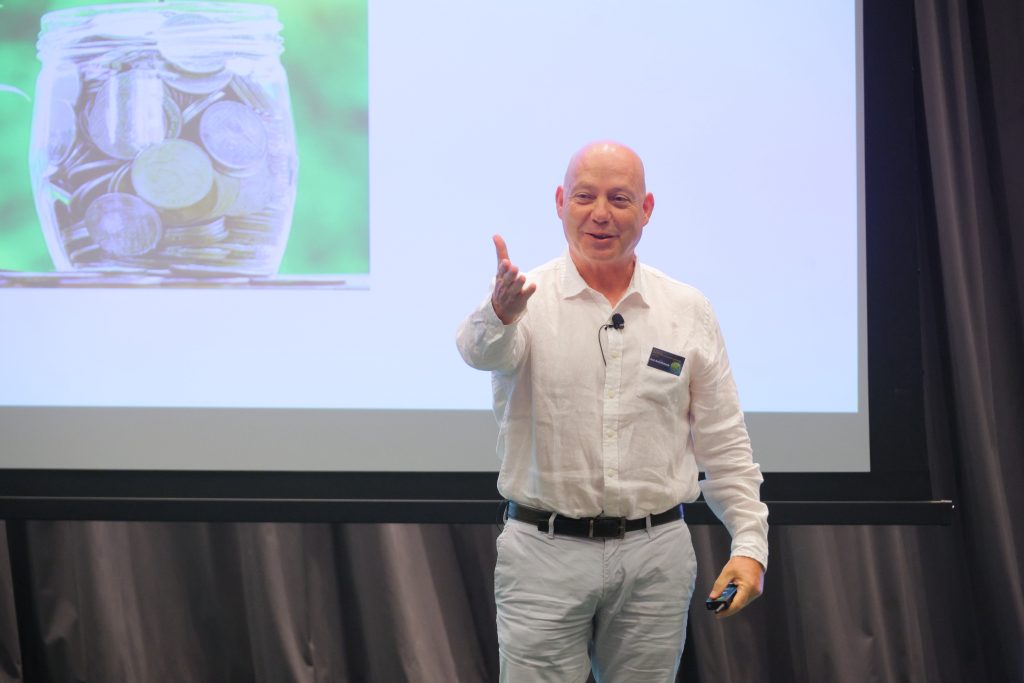
Professor Roni MICHAELY, Co-Director of HKU Jockey Club Enterprise Sustainability Global Research Institute, introduces the Institute’s mission, initiatives and research team.
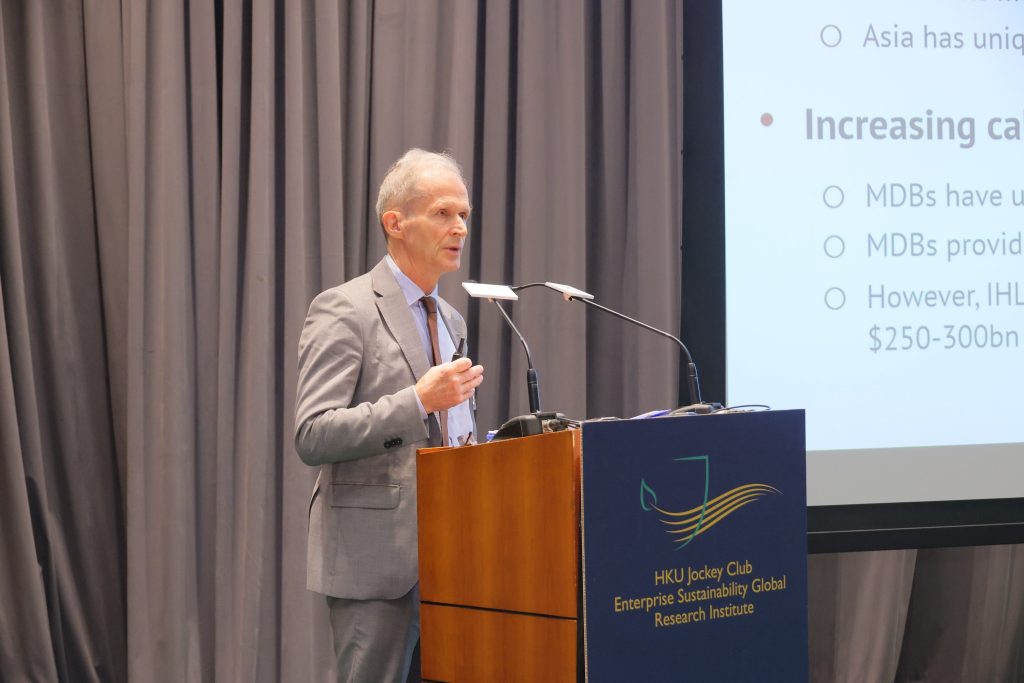
Dr. Erik BERGLÖF, Chief Economist of the Asian Infrastructure Investment Bank, delivers a distinguished ESG lecture.
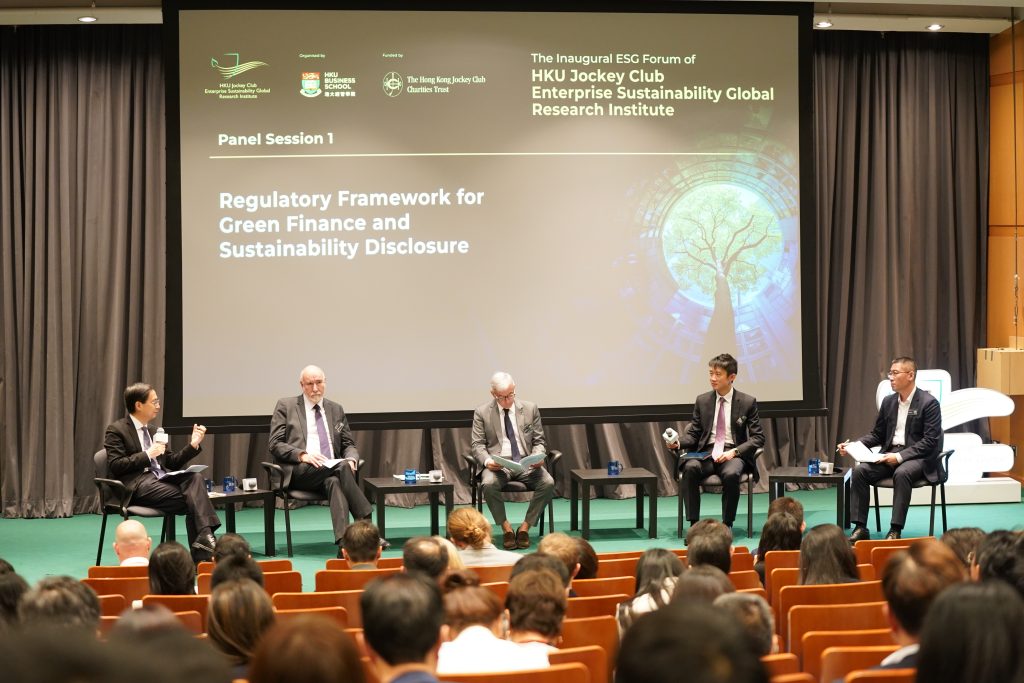
(From second left) Mr. Michael DUIGNAN, Executive Director (Corporate Finance) of Securities and Futures Commission; Mr. Sabino FORNIES-MARTINEZ, Minister Counsellor, Economic and Financial Affairs Section of EU Delegation Beijing; Mr. Kenneth HUI, Executive Director (External) of Hong Kong Monetary Authority; and Dr. Bing LENG, Member of International Sustainability Standards Board, participate in the panel discussion titled “Regulatory Framework for Green Finance and Sustainability Disclosure”, moderated by Professor Jun MA (first left), Professor of Practice of HKU Business School and Chairman and President of Hong Kong Green Finance Association.
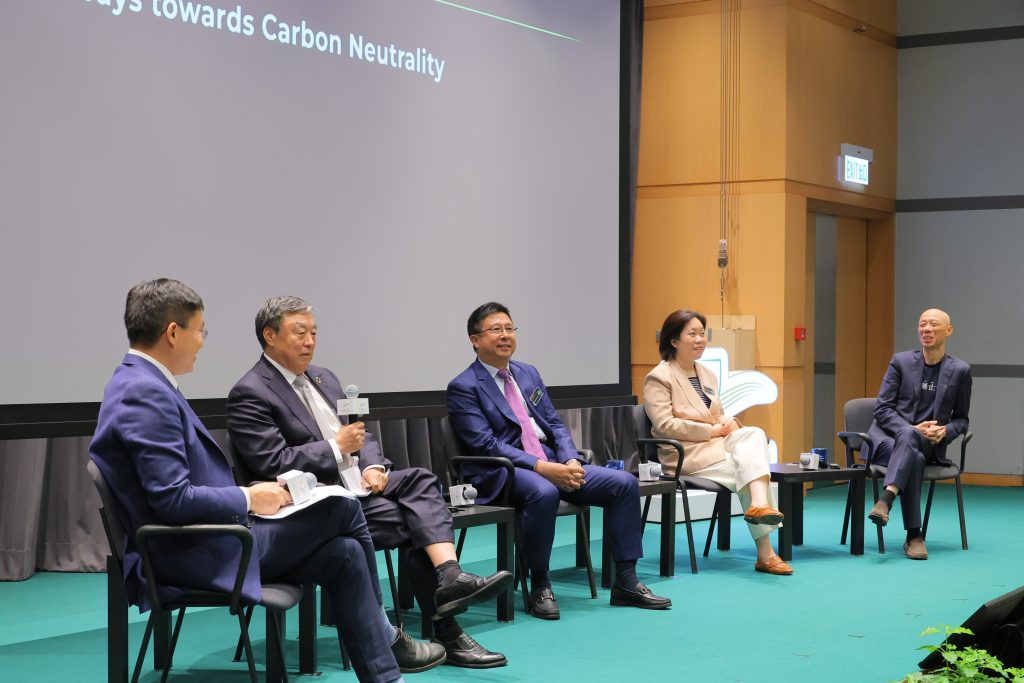
(From second left) Dr. Weihua MA, Chairman of China Entrepreneur Club, Chairman of National fund for Technology Transfer and Commercialization and Former Executive Director, President and CEO of China Merchants Bank; Dr. Mingchun SUN, Vice Chairman of Chinese Financial Association of Hong Kong; Ms. Xiaoshu WANG, Head of APAC ESG & Climate Research of MSCI; and Mr. Kam-sing WONG, GBS, JP, Former Secretary for the Environment of HKSAR and Distinguished Department of Architecture Fellow of The University of Hong Kong, participate in the panel discussion titled “Pathways towards Carbon Neutrality”, moderated by Professor Guojun HE (first left), Director of HKU Jockey Club Enterprise Sustainability Global Research Institute.
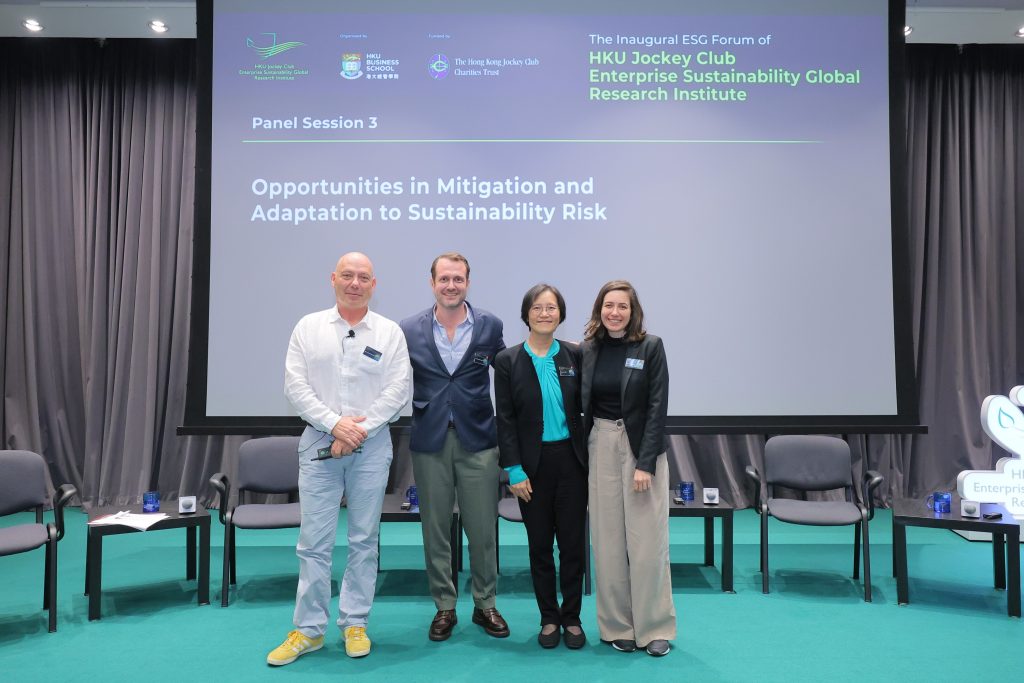
(From second left) Mr. Alexander BENT, Co-founder and Managing Partner of Undivided Ventures; Ms. Irene CHU, Partner, Head of New Economy, Head of Life Science Hong Kong, ESG Advisory of KPMG China; and Ms. Noa OLENIK, Co-founder and Chief of Sustainability of Rewind, participate in the panel discussion titled “Opportunities in Mitigation and Adaptation to Sustainability Risk”, moderated by Professor Roni MICHAELY (first left), Co-Director of HKU Jockey Club Enterprise Sustainability Global Research Institute.
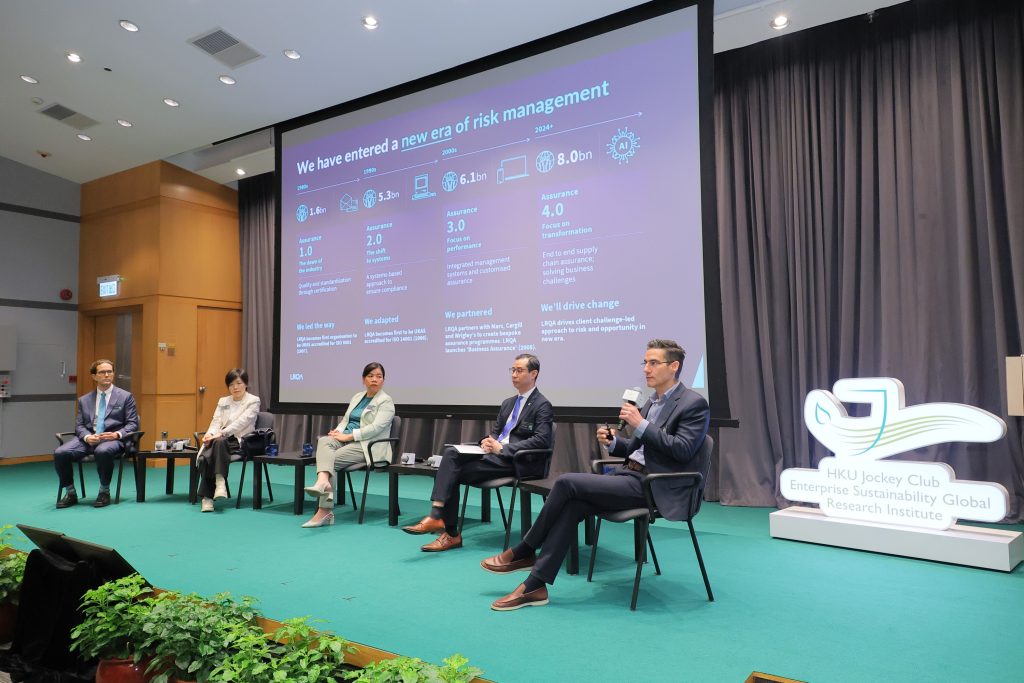
(From second left) Ms. Bonnie SO, CEO/Secretary General of Hong Kong Red Cross; Ms. Nicole WONG, Chief Executive Officer of WWF-Hong Kong; Mr. Aldous CHIU, Executive Manager of Charities (Data Analytics and Integrated Reporting) of the Hong Kong Jockey Club; and Dr. Kevin FRANKLIN, Chief Growth Officer of LRQA, participate in the panel discussion titled “Pathways towards Social Advancement”, moderated by Professor David BISHOP (first left), Associate Director of HKU Jockey Club Enterprise Sustainability Global Research Institute.
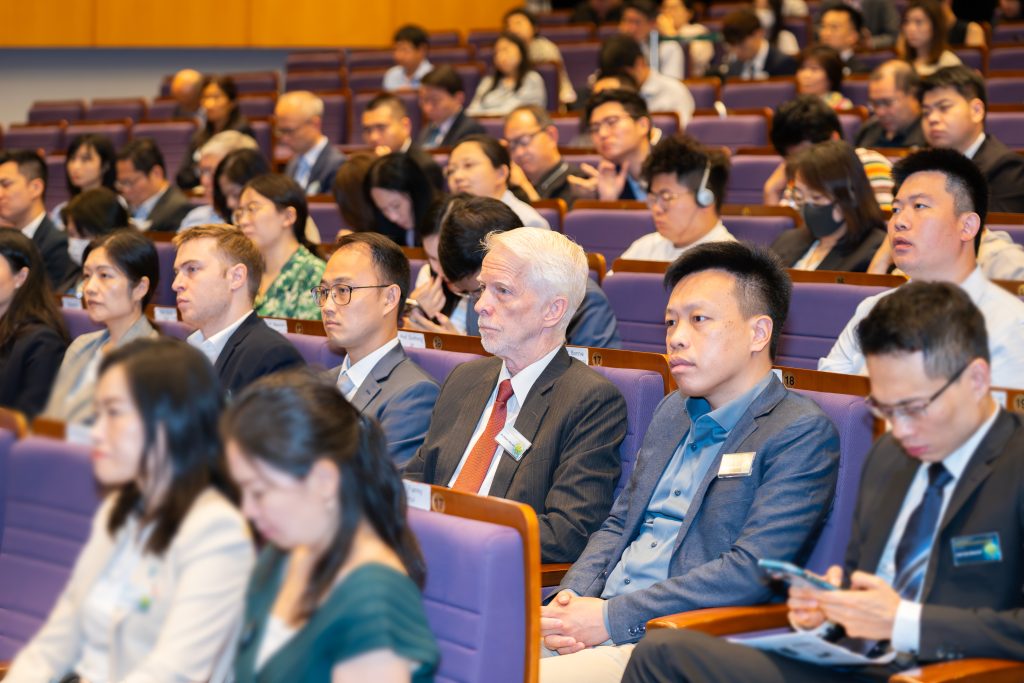
The Inaugural ESG Forum gathers esteemed scholars, policymakers, business leaders, NGOs, start-ups and the wider community to discuss the best practice and solutions to ESG challenges.
More photos are here.






